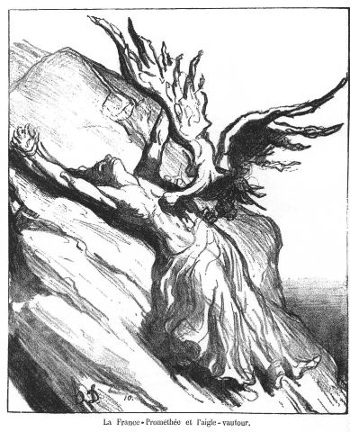King Lear Contents
Act 2 scene 4
Synopsis of Act 2 Scene 4
When Lear arrives at Gloucester’s castle, he is outraged both by the indignity inflicted on his servant Gaius (Kent) and the fact that Regan refuses to see him. Finally, Kent is released and Regan speaks to Lear, but only to insist that he admits that he has done wrong to Goneril. Lear falls to his knees to utter a bitterly sarcastic confession, then curses Goneril, refusing to have anything to do with her when she presently arrives.
However, once Regan will allow her father only twenty-five knights, Lear decides to go to Goneril with the fifty she allowed. But Goneril no longer sees why her father needs fifty and his daughters keep discounting Lear’s retinue until he is allowed no-one. Promising revenge on them, an overcome Lear departs as a storm begins to rage. Gloucester reports that Lear has called for his horse and rushed away, yet there is no shelter from the storm for miles around. However Regan and Cornwall advise Gloucester to bar his doors to the king.
Commentary on Act 2 Scene 4
Lear's faith in the natural order is shattered in this scene and it is symbolised by the onset of the storm. Lear discovers much about himself here, as well as what it means to be human. Regan's treatment of him, particularly on the issue of his knights, makes him realise that to be human requires more than simple utilitarianism.
he wears cruel garters: A good example of a Shakespearean pun. It is a play on the word 'crewel' which means the sort of thin yarn that was used for making garters.
Coming from us: This refers to the very important point that Kent was Lear's representative and should have been treated with respect.
Ere I was risen from the place: Kent is very careful to show that he in fact treated Cornwall and Regan with the respect due to their rank. He says he presented Lear's letter on his knees.
Winter's not gone yet, if the wild geese fly that way: Flocks of wild geese were seen in Shakespeare's time as a sign of bad weather to come. The Fool is suggesting that Kent's punishment is a sign that much more trouble will follow.
O, how this mother swells up toward my heart ... Hysterica passio: Both 'mother' and 'hysterica passio' were names for hysteria (which derives from the Greek word for the womb).
We'll set ... ant: The Fool's words are rather obscure but he seems to mean that Kent could learn from the ant the answer to Lear's question about his retinue. The King is at the lowest point ('winter') of his fortunes, so it is not a good time to be employed by him, any more than the ant will work in winter when there is no food for it.
Deny to speak to me? Lear repeats with disbelief what Gloucester has just told him about the refusal of Cornwall and Regan to speak with him.
I would ... adulteress: Lear is once again commenting on natural/unnatural behaviour. If Regan were not glad to see him, then he could only surmise that Regan was not his real daughter and that his wife must have been unfaithful to him.
 Sharp-toothed unkindness, like a vulture: Probably referring to the story of Prometheus whose liver was consumed every night by an eagle - as a punishment for having stolen fire from the gods. Goneril's unkindness (cruelty/unnaturalness) is eating into Lear's heart.
Sharp-toothed unkindness, like a vulture: Probably referring to the story of Prometheus whose liver was consumed every night by an eagle - as a punishment for having stolen fire from the gods. Goneril's unkindness (cruelty/unnaturalness) is eating into Lear's heart.
Ask her forgiveness? Lear emphasises how unnatural this reversal of the parent/child relationship would be. In his view it is not for the parent to seek forgiveness of his child, but rather the other way round.
Art not ashamed ... take her by the hand: As the tension mounts, Lear watches to see how his daughters react to each other.
O sides, you are too tough: Lear refers to his physical frame which is too strong to allow his heart to break (which he thinks it should).
Investigating Act 2 Scene 4...
- What effect does seeing Kent in the stocks have on Lear?
- How does Regan treat Lear in this scene?
- What is his reaction to her behaviour?
- Lear suggests that the rules of nature may be more just than family bonds or human laws. Why does he think this?
- What effect on Lear does the reduction in his knights produce?
- Why does this seem to have such a profound effect upon his sense of identity?
- What is the relationship between Goneril and Regan's behaviour towards their father and the beginning of his descent into madness?
Recently Viewed
Related material
Scan and go
Scan on your mobile for direct link.